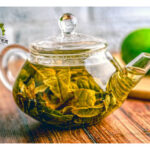Tea and Coffee both are the most popular beverages in history. Culinary artists are always busy in a trail of unique combinations, just like mixing Coffee and Tea. The blend of Coffee and tea may sound unusual, but it’s surprisingly popular, especially in Hong Kong cafes.
In 1950, many cafes developed in Hong Kong city that was solely based on the theme of Mash-up. The mash-up theme includes both Asian and western food cultures together. The blends of coffee tea also originated around the same time, which combined Chinese tea and western Coffee.
Now you might be wondering why people devour two different beverages together, Right? To answer your question, let’s dig in to explore the secrets behind mixing Coffee and Tea.
Combinations of Coffee and Tea Beverages
When you want to enjoy the boldness of coffee and the sweetness of tea altogether, then there is no other option than to mix it. There are several interesting ways of mixing it to make a taste, that you’ll fall in love with. By doing this you’re gonna find your new favorite.
Moreover, there are multiple combinations of coffee and tea all around the globe. Let’s dive deep into it to explore them.
1) Yuenyeung
The most famous beverage among the three combinations of tea and coffee would be yuenyeung. The origin of this drink in Hong Kong and found in all traditional tea houses of the country.
The yuenyeung is traditionally made by mixing Hong Kong-style milk tea and coffee. A local tea house known as Lan Fong Yuen claimed to invent the drink in 1952.
The local laborers and drivers of Hong Kong used to drink tea but soon realized it contains less caffeine. They later added coffee in the tea so they could awake during their long night shifts.

Recipe to Prepare Yuenyeung
Ingredients
- 1 Cup Bolivian Drip Coffee Strongly Brewed
- 1 Cup HongKong-style Milk Tea
- 1 tbsp Honey Optional
Instructions
- Mix the Coffee and Milk Tea thoroughly.
- Pour it into small cups or glasses.
- Youcan serve it in hot or chilled form.
2) Spritz
This drink is popular in Ethiopia, and people love this drink. The drink is simple to make and comes from an espresso combo with tea and sugar as a sweetener. Moreover, the tea has a refreshing taste, and people enjoy it in towns like Hawassa and cities like Addis Abada.
The tea is made with steeped black tea with the oaky bitter roasted dark espresso.
3) Kopi Cham
You can also find a similar drink like spritz in Malaysia and Singapore’s streets and traditional coffee shops. The native people of the two countries call it Kopi Cham.
The beverage is usually made by mixing sugar, evaporated milk, intense black tea with concentrated coffee. People drink this combination of coffee and tea in both hot and cold forms.

The Ratio of Mixing Coffee & Tea
The yuenyeung formula utilizes a 1:1 proportion of coffee to milk tea, and it’s an incredible spot to start.
A few people incline toward not so much coffee but rather more tea. You may even observe a few recommendations that go to the extent that seven parts of milk tea to 3 sections of coffee.
More often than not, you will locate a fair compromise between these two boundaries. It is likewise going to rely upon your coffee quality just as the sort of tea prepared.
While digging more into a new blend, start with the 1:1 ratio to perceive what you think. You can generally change it promptly or hold up until whenever you stir up yuan yang to calibrate your preferences.
Advantages and Disadvantages of Mixing Coffee and Tea
So far, I have shared a general introduction to the eyebrow-raising topic of mixing coffee and tea. I always consider it a necessary step to demonstrate the advantages and disadvantages of beverage.
So now, let us land back on the problem. If you are scraping your head wondering whether mixing coffee and tea would be harmful or beneficial for your health, read below!
5 Advantages of Mixing Coffee and Tea
- A mixture of coffee and tea contains caffeine and antioxidants, which may help to prevent stroke. Also, it gives more energy.
- It boosts the metabolism which helps to burn body fat quickly.
- The combination of tea and coffee contains beneficial phytonutrients, which are helpful for people living with chronic mild dehydration.
- It also contains L-theanine, the compound has several health benefits like calm anxiety and keep your body and mind relax.
- The combination of coffee and tea also reduces the level of cholesterol.

5 Disadvantages of Mixing Coffee and Tea
- Tea contains oxalates and mixing it with coffee, can potentially cause kidney stones.
- Excessive intake of this combination may affect your sleep brutally.
- If you drink 5-6 cups a day then It can cause burning pain in the chest.
- Also, it increases the production of acid in your body, which can cause heart attacks.
- Muscular cramps, body weakness, and electrolyte imbalance can be caused due to intake of this combination.

Moreover, it is evident now that mixing coffee and tea might taste appealing, but it may not be good news for your health. While delivery, like dangers of premature birth and other adverse impacts due to increased doses of coffee, several problems can occur.
To wrap it up!
Tea and Coffee is a great combo, and people drink it from all around the globe. If you’re a person who wants to try something new, I suggest you go for the coffee-tea beverages we mentioned earlier. Make sure that you consider your health before adding this drink to your diet.
Mixing Coffee and tea is a normal thing, and you can also prepare it at your home. You can try the famous yuenyeung drink or kopi cham, whatever suits you. Moreover, you can enjoy the drinks in the summer as well by making them in iced forms.





